Detailed introduction of St. Pölten University of Applied Sciences:
Introduction
St. Pölten University of Applied Sciences is a well-known university of applied sciences in Austria. It is committed to providing high-quality practice-oriented academic education in many fields, focusing on cultivating students' professional skills and comprehensive qualities, and fully preparing students for their career development and future social roles.
Overview
Student size: Currently, there are more than 3,700 students receiving education in various bachelor's, master's degree programs and continuing education courses here.
Course settings: The school offers a wide range of undergraduate and master's degree programs and continuing education courses covering nine subject areas including media and digital technology, computer science and security, railway technology, communications, management, health and social sciences.
History and establishment time
The school's history can be traced back to 1993, when the "verein zur förderung der gesellschaft zur durchführung von fachhochschul-studiengängen St. Pölten m.b.h." was established, that is, the Association for the Implementation of Courses at the University of Applied Sciences in St. Pölten was established. In the 1996/97 academic year, the first degree program in telecommunications and media began to enroll students, and in January 2004 the school officially obtained the legal name of "University of Applied Sciences".
School Strength
Faculty: It has 367 full-time staff and about 906 part-time teachers, who have rich teaching experience and professional knowledge and can provide students with high-quality teaching and guidance.
Scientific Research Achievements: The school has achieved remarkable results in many research fields, such as the establishment of professional research institutions in innovation systems, creative media and technology, IT security research, integrated transportation research, health sciences and social inclusion, and has carried out in-depth research work. Its research results not only promote academic development, but also provide strong support for the practice of related industries.
International Exchange and Cooperation: As a member of the European University Alliance e³udres² project, the school coordinates cooperation between universities of applied sciences from six different countries. The school actively encourages students to participate in international exchange programs, such as hackathons, living labs, training camps and other activities jointly organized with 9 partner universities in the alliance, providing students with rich international exchange and practice opportunities and broadening their international horizons.
Institutional Nature
Public University of Applied Sciences.
Educational Philosophy
Emphasis on practice-oriented academic training, focusing on cultivating students' practical experience, teamwork ability, foreign language ability, communication and interpersonal skills, and committed to enabling students to acquire the ability to adapt to future career development, providing students with academic education closely related to their careers, while attaching importance to the compatibility of learning, career and family, and meeting the needs of different students through a variety of flexible learning methods, such as part-time learning and dual-system learning.
Key laboratories and disciplines
Key laboratories: The school has campus media laboratories such as C-TV Television Research Laboratory, FH Space TV, and Digital Health Innovation Center focusing on the field of health sciences. These laboratories are equipped with advanced equipment and technology, providing strong support for the scientific research and practical teaching of students and teachers.
Key disciplines:
Media and Digital Technology: including majors such as media technology, creative computing, digital media management, and digital design. This discipline focuses on cultivating students' innovative ability and practical skills in the field of digital media, so that students can adapt to the needs of the rapidly developing media industry.
Computer Science and Security: Covering majors such as IT security, data science and business analysis, network security and resilience, it is committed to cultivating students' professional knowledge and practical problem-solving capabilities in the fields of computer science and information security to cope with increasingly complex network security challenges.
Railway Technology and Transportation: With majors such as Railway Technology and Transportation, Railway System Technology and Management, it combines theoretical teaching with practical application, cultivates a large number of professional talents for the railway industry, and promotes the innovation and development of railway technology.
Health Sciences: Including majors such as nutrition, health care and nursing, physical therapy, and digital medicine, it focuses on the knowledge and skills training in the field of human health, and improves students' comprehensive capabilities in health promotion, disease prevention, treatment and rehabilitation through interdisciplinary teaching and research.
Departments
The school has the following departments :
Digital Business and Innovation: offers undergraduate majors such as Management and Digital Business, Marketing and Communication, and master's majors such as Digital Business Communication, Digital Business and Sustainability.
Digital and Digital Technology: covers undergraduate majors such as Media Technology, Creative Computing, and Media Management, as well as master's majors such as Digital Media Management, Digital Design, and Digital Healthcare.
Digital Science and Security: includes undergraduate majors such as IT Security, Data Science and Business Analytics, and master's majors such as Cybersecurity and Resilience, and Data Intelligence.
Digital Technology and Transportation: offers undergraduate majors such as Railway Technology and Transportation, and master's majors such as Railway Technology and Railway System Management.
Digital Science: includes undergraduate majors such as Nutrition, Healthcare and Nursing, and Physical Therapy, as well as master's majors such as Digital Healthcare.
Digital Science: offers undergraduate and master's majors such as Social Work, as well as undergraduate majors such as Social Education.
Ranking
In the 2022 European Triple E Awards, the university is one of the finalists in the category of Young Entrepreneurial University of the Year.
According to Trend Magazine, St. Pölten University of Applied Sciences ranks 10th among the top 300 employers in Austria.
Fees
The university charges tuition fees, which vary depending on the course.
Campus
Location: Located in St. Pölten, the capital of Lower Austria, Austria, close to the city center, with convenient transportation and complete living facilities.
Facilities: The campus building is modern and environmentally friendly, equipped with advanced teaching facilities, such as lecture halls equipped with the latest technology, computer rooms, laboratories, libraries and canteens, etc., and also has complete sports facilities, providing students with good learning and living conditions.
-

Graz University of Technology
-

University of Linz
-
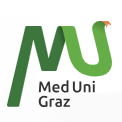
Medical University of Graz
-

University of Leoben
-
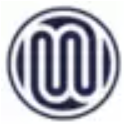
Medical University of Vienna
-
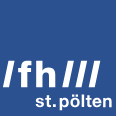
St. Pölten University of Applied Sciences
-
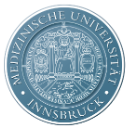
Innsbruck Medical University
-
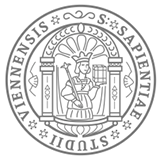
University of Vienna
-
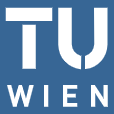
Vienna University of Technology
-

University of Natural Resources and Applied Life Sciences, Vienna
-

Mesoamerican University
-

Istmo University
-

Mariano Galvez University of Guatemala
-

Regional University of Guatemala
-

Galileo University
-

Francisco Marroquín University
-

Rafael Landívar University
-

University of the Valley of Guatemala
-

University of San Carlos of Guatemala
-

Technological Institute of Tlaxcala Plateau
-

Golfo University
-

Technological University of South Sonora
-

Technological University of Huejotzingo
-

Tizimín Institute of Technology
-

Chilpancingo Institute of Technology
